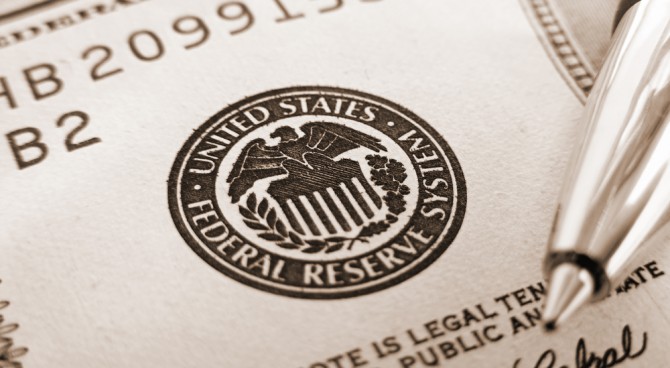Voters should examine how far left the former vice president has moved since winning the primaries.
By Phil Gramm
July 30, 2020 1:48 pm ET
When unemployment and poverty rates hit record lows in late 2019, while retirement accounts and average household incomes surged to record highs, Joe Biden understood that general-election voters would never go for Bernie Sanders’s tax-and-spend socialism or Elizabeth Warren’s command-and-control version. Mr. Biden also bet, taking longer odds, that the Democratic establishment and ultimately the Democratic primary voter, desperately wanting to retake power, would reject his primary rivals as well. So Mr. Biden offered a nicer version of the status quo. “Nobody has to be punished,” he told donors in June 2019. “No one’s standard of living will change, nothing would fundamentally change.”
Despite Mr. Biden’s shaky start, he surged in South Carolina once Democrats faced the reality that the alternative was Mr. Sanders, a self-identified socialist who was on record saying positive things about Venezuela, Cuba and the Soviet Union. The establishment swung behind Mr. Biden and the primaries were over.
Yet after he won the nomination as the only “moderate” in the race, the new world of the coronavirus shutdown revealed a new candidate who wants “not just to rebuild the economy, but to transform it,” as Mr. Biden said in a May address. In rapid succession he adopted the Sanders platform, the cornerstone of the Warren candidacy, and the most radical racial agenda in recent U.S. history.
Mr. Biden’s dramatic political transformation has exposed what many have always suspected: Moderate Democrats aren’t socialists unless they think they can adopt socialist policies and survive politically.
The Biden-Sanders “Unity” manifesto envisions the socialism of an all-encompassing welfare state, with virtually every need a right, and every right guaranteed by taxpayer funding. Housing becomes a right, and “no one should have to pay more than 30 percent of their income for housing.” Public colleges will be “tuition-free” for “roughly 80 percent of the American people.” Student loans are expunged, payments are capped and eventually forgiven. School lunches, along with breakfast and supper, will be universally free.
On health care, Mr. Biden bought Mr. Sanders’s “Medicare for All” scheme—though on an installment plan. First health care becomes a right where “no one pays more than 8.5 percent of their income.” Mr. Biden’s planned public option is heavily subsidized, with no deductibles and low copayments. Like current Medicare, this “Medicare option” would further inflate the cost of private plans by making them pay more to compensate for government’s underpayment to hospitals and doctors. The inevitable result would be that the Medicare option would quickly “compete” private plans out of business. Commercial banking would be similarly threatened by new publicly backed post-office banks along with the Federal Reserve, which Mr. Biden wants to grant permanent authority to lend to businesses.
A President Biden would implement a version of the Sanders Green New Deal, only in 15 years instead of 10. Mr. Biden’s plan uses mandates and subsidies to dictate what kind of energy is produced, remaking the world’s most efficient energy industry in the image of Solyndra.
In all things, the government would direct, regulate and mandate with armies of the “best and brightest,” organized as a caring corps of subsidized health-, child- and elder-care workers, plus a climate corps of environmental regulators. Government employees would enjoy the “highest labor standards” for pay and benefits. A new right to strike for all workers would include secondary strikes like those that recently paralyzed France.
With government for, of and by government, all public servants would benefit, except the police. Police are to be more closely tracked and exposed, and federal law-enforcement would be hampered with a New York-style arrest-and-release program. Disorder awaits. Since Mr. Biden believes “substance use disorders are diseases, not crimes” and “no one should be in prison solely because they use drugs,” American neighborhoods may soon resemble the streets of San Francisco.
After picking up Mr. Sanders’s positions, Mr. Biden has absorbed Ms. Warren’s rhetoric. This month he pledged to end the “era of shareholder capitalism.” That era began with the Great Economic Awakening that followed the Enlightenment. By rejecting shareholder capitalism and making private wealth subject to public demands, the Biden administration would take America back to the medieval world, where labor and capital were forced to pay fealty to the crown, guild, church and village, which leeched the lifeblood out of the incentives to work and save. Today’s critics of shareholder capitalism want to hand business over to “stakeholders” such as government, environmentalists, unions and communities.
As the new stakeholders extract their unearned share, the equity value of businesses would plummet. Since 70% of all U.S. stocks are owned by 401(k)s, individual retirement accounts, private retirement plans or insurance companies to fund annuities and death benefits, Americans would see their nest eggs shattered. Resources would be redistributed not by taxing and spending but simply by forcing private companies and their employees to share the fruits of their labor and thrift. Unlike Mr. Sanders’s socialism, in which government assumes control and therefore the blame when the system fails, Ms. Warren’s style of socialism means it’s always possible to blame business.
The final pillar of the Biden program is racial justice. Ironically, the vice president to the first black president believes that America is systemically racist. His “Unity” program declares that virtually every significant gap—in wealth, health care, housing, policing, education—can be blamed on racism. The cure is a massive transformation of every aspect of American life, using a reparations commission, wealth transfers, subsidies, employment and promotion preferences, quotas, and even a new mandate to the Federal Reserve to seek racial equity. Every action that displaces merit with preference will reduce American efficiency and competitiveness. Tilting the system in the name of correcting old injustices will create new ones.
Four months into the pandemic crisis, with the nation’s cities ablaze, the moderate Mr. Biden seemed likely to run away with the election. But moved by a dual crisis too big to waste, and pushed by the base of his party, he has now adopted Sanders-Warren socialism and a radical plan to remake American society on the basis of race.
Before Mr. Biden’s transformation, the question facing voters was “Do you support Donald Trump?” The question now is, “Are you willing to endanger the economy and your freedom to end the Trump presidency?” For discontented Republicans and independents, and the many Americans who found refuge from socialism in this country, those questions are very different. There is a big difference between being unhappy and being suicidal.
Mr. Gramm is a former chairman of the Senate Banking Committee.




